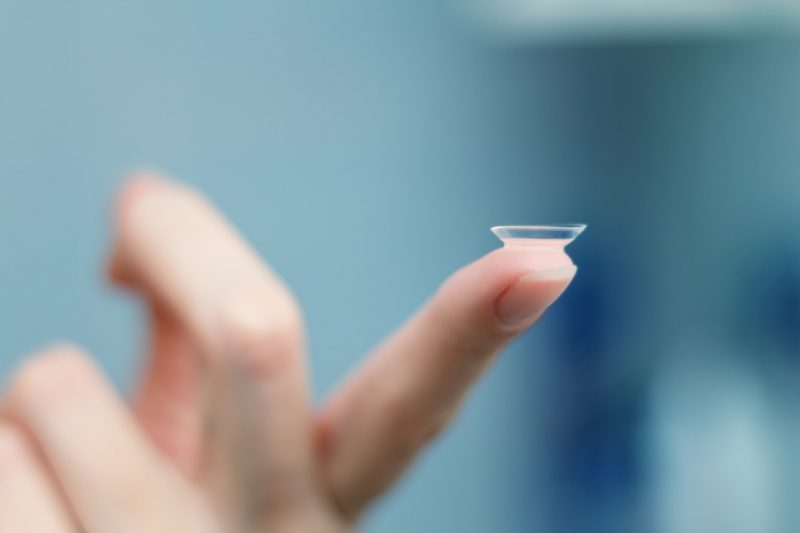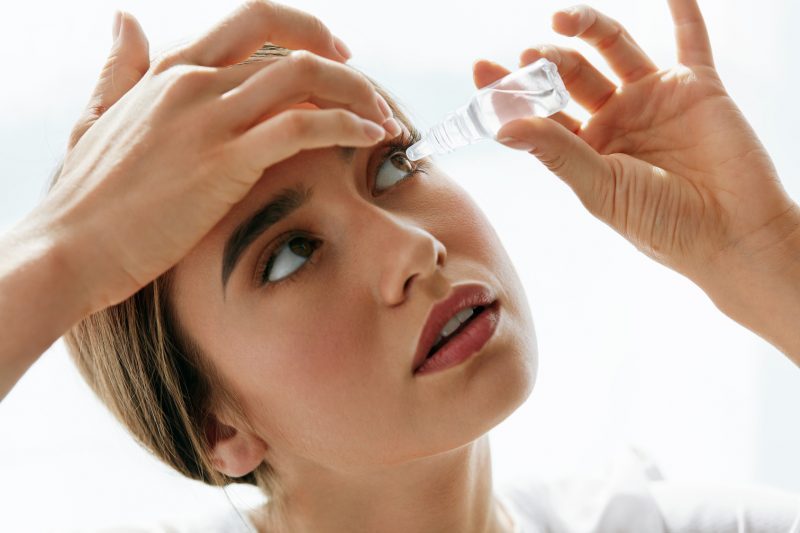Keep your eyes free from infection and irritation this summer with these eye safety tips for days spent at the beach and swimming pools.
As the weather heats up, taking a dip in the water is a great way to stay cool. But can the extra time splashing around hurt your eyes? And should you take special care if you wear contact lenses?
According to Hajirah N. Saeed, M.D., an ophthalmologist at Mass. Eye and Ear, “any body of water — whether it’s a pool, hot tub, lake or ocean — poses some risks to your eyes.”
In the summer, she sees many patients with eye infections or dry, irritated eyes related to swimming. Check out her eye safety tips before your next pool party or beach day:
1) Take out your contact lenses before diving in
Wearing contacts in any type of water puts you at high risk of developing an eye infection. That’s because water is home to many harmful microbes, and contact lenses act like sponges.
“The lenses absorb water and can trap viruses and bacteria on the surface of your eye,” Dr. Saeed explains. Furthermore, people who wear contacts are more likely to have dry, irritated eyes that are prone to cuts and scrapes. These small abrasions increase the risk of bacteria entering the eye.
Even pools that have been treated with chlorine can still cause infections. “The chlorine kills most harmful things in the water, but not everything. It’s a good idea to be extra cautious in busy, public swimming pools,” Dr. Saeed says.
Some eye infections can be very serious, like acanthamoeba keratitis. Although rare, it is most common among those who wear contact lenses, and it can cause permanent vision loss or blindness without prompt treatment.
And, if you need another reason to ditch the contacts — water can cause your lenses to tighten on your eyes, causing irritation.
2) Wear swim goggles for ultimate protection
The best way to protect your eyes is to wear waterproof swim goggles. They should fit snuggly against your eyes without leaking.
“Even if you wear goggles, it’s still best to take out your contact lenses first,” Dr. Saeed says. She recommends using prescription goggles, so you can still see clearly underwater without any of the risks. Many goggles also include UV-protection to prevent sun damage to your eyes.
3) Use artificial tears to help prevent “swimmer’s eye”
Swimming — especially in pools or salt water — can make your eyes dry, red, itchy and sensitive to light for up to a couple hours. The water washes away the natural layer of tears that coats the surface of your eyes and keeps them moist and clear.
“Using artificial tears or saline drops before and after you swim can help prevent dry and irritated eyes,” says Dr. Saeed.
4) Avoid the water if you had recent eye surgery
If you’ve had eye surgery recently, ask your eye doctor when it’s safe to swim. In most cases, you’ll need to avoid swimming or putting your head under water for 2-6 weeks after surgery.
How to spot signs of infection
If you think you may have an eye infection, it’s important to see an eye doctor right away. Typical signs of an eye infection include:
- Pain
- Redness
- Mucus-like discharge
- Vision problems (such as blurry vision)
- Sensitivity to light
- Swelling
- Sensation of having something in your eye
About Our Expert
 Hajirah N. Saeed, M.D., is an ophthalmologist in the Cornea and Refractive Surgery Service at Mass. Eye and Ear and Boston Children’s Hospital. She sees patients at the Mass. Eye and Ear Main Campus (243 Charles Street, Boston) and Stoneham locations.
Hajirah N. Saeed, M.D., is an ophthalmologist in the Cornea and Refractive Surgery Service at Mass. Eye and Ear and Boston Children’s Hospital. She sees patients at the Mass. Eye and Ear Main Campus (243 Charles Street, Boston) and Stoneham locations.



